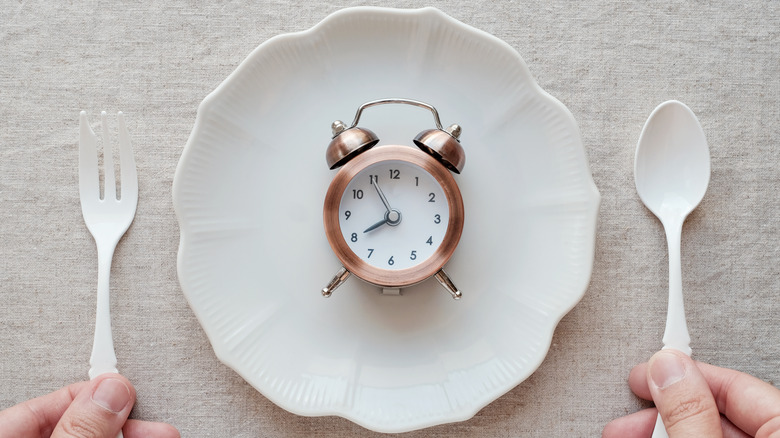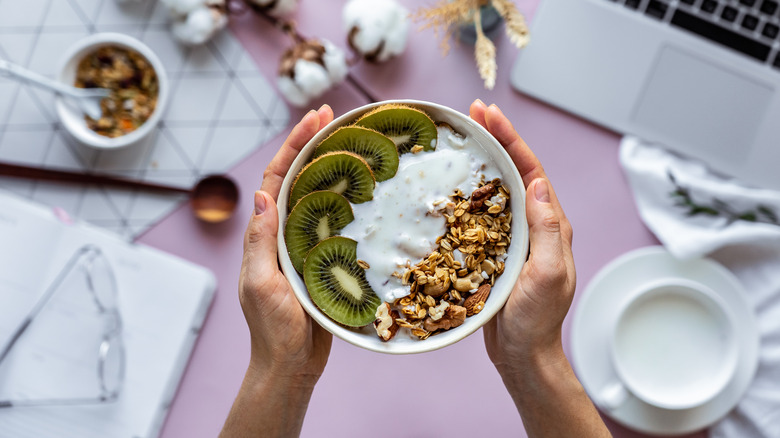If You Don't Get Hungry In The Morning, This Could Be Why
You've probably heard somewhere that breakfast is the most important meal of the day. But what if you never feel hungry in the morning? First, you need to figure out why you aren't hungry.
According to HuffPost, you may be eating too late into the night before you go to sleep. Doing so can make your appetite scarce in the morning, mainly if you ate a lot for dinner or if it was high in calories. Elite Daily reports that eating a large meal will disrupt your morning appetite because your body will have just finished digesting your previous night's meal. It's not ready to send those hunger signals just yet.
A 2018 study found that your hormones play a factor in how hungry you feel, specifically the hormone ghrelin. In addition, researchers found that ghrelin levels are higher in the evening than in the morning.
Anxiety, depression, and stress can also cause a lack of hunger in the morning, according to a 2020 study published in Molecular Psychiatry. Changes in appetite are common as it relates to mental health.
Another possible cause for not feeling hungry in the morning is pregnancy. You're not going to have much of an appetite if you're dealing with morning sickness when you wake up. In a 2017 study of 2,270 pregnant women, 34% reported a reduced appetite and 89% reported feeling nauseous.
So, now you know what's causing you to not feel hungry in the morning. Here's what to do about it.
What to do if you aren't hungry in the morning
The good news is you don't have to eat something right after waking up, and your breakfast doesn't have to be huge. Give yourself some time to get ready for the day — take a shower, get dressed, and drink a large glass of water. Then, if you're still not hungry, just try eating something small, says nutritionist Raphaël Gruman (via HuffPost). It's okay to eat breakfast two to three hours after waking up, but Gruman says breakfast is essential because it strengthens cognitive function.
Elite Daily recommends a piece of fruit or some nuts. Starting with something light can help you feel hungry a little later, essentially firing up your need for food.
Additionally, eat dinner at the same time every evening, about two to three hours before bedtime. This allows your body enough time to digest your food before you go to sleep and to feel hungry by the time you should be eating breakfast the following day (via Healthline). Eating at an earlier time will also help you sleep better.
Good Housekeeping recommends a breakfast that contains protein, fiber, and healthy fats to fuel your morning. Sticking to a breakfast, lunch, and dinner routine can help you feel hungry in the morning so you can start your day off right.


